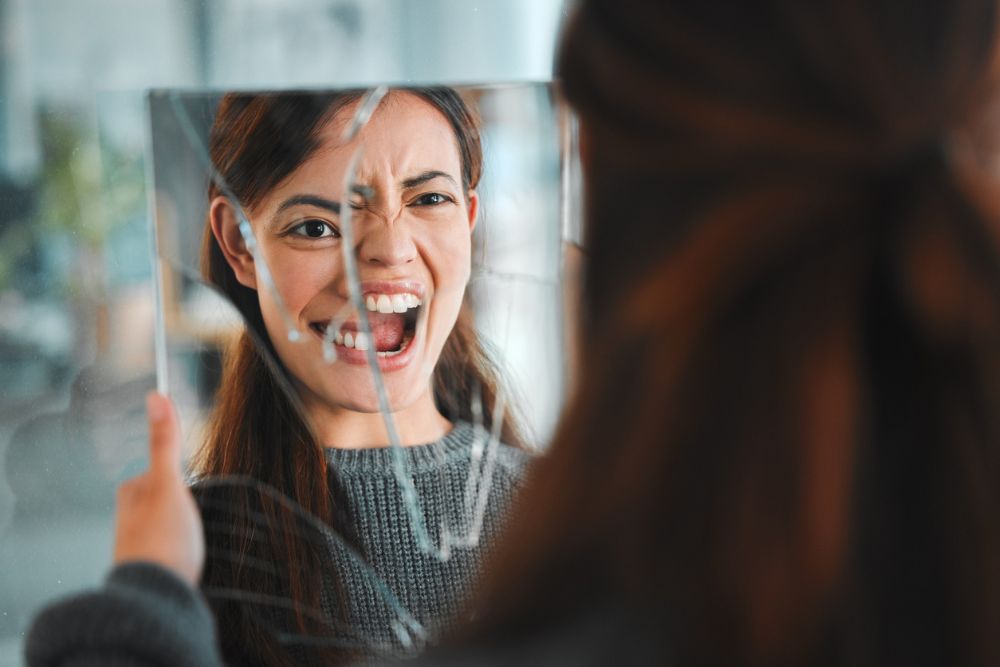Impulse Control Disorder and Addiction

Published: November 8, 2024
Impulse control disorder is a mental health condition that involves difficulty resisting urges or impulses that may harm oneself or others. People with impulse control disorders may engage in risky or compulsive behaviors, often without thinking through the consequences. For individuals struggling with both impulse control disorder and addiction, the challenges of maintaining control over actions and decisions are even more complex.
At Rockland Treatment Center, we understand the unique needs of individuals with co-occurring disorders and offer comprehensive, compassionate care to support recovery.
What is Impulse Control Disorder?
Impulse control disorders are characterized by the inability to resist urges that may lead to harmful behavior. Common types of impulse control disorders include:
- Intermittent Explosive Disorder: Episodes of sudden anger or aggression, often disproportionate to the situation.
- Kleptomania: A compulsion to steal items, often without any real need for them.
- Pyromania: An urge to set fires to relieve tension or for emotional release.
- Compulsive Gambling: An inability to resist the urge to gamble, often leading to financial and personal distress.
- Trichotillomania: Compulsive hair-pulling, leading to noticeable hair loss.
While these disorders vary, they all share a common trait— difficulty managing impulses, which can result in compulsive or destructive behaviors.
The Connection Between Impulse Control Disorder and Addiction
Impulse control disorder and addiction often co-occur, creating a cycle where each condition reinforces the other. For example, someone with kleptomania may use substances to cope with the stress and guilt associated with their compulsions, leading to substance dependency.
In fact, research shows that substance use is seen in:
- Up to 50% of people with kleptomania
- 35-76% of pathological gamblers
- 15-20% of people with trichotillomania
- 35-48% of people with intermittent explosive disorder
- 33% of people with pyromania
A person with an addiction may develop impulse control issues due to the effect substances have on the brain’s reward pathways, reducing their ability to control urges.
Key Links Between Impulse Control Disorders and Addiction
 Brain Chemistry
Brain Chemistry
Both addiction and impulse control disorders affect the brain’s reward system, involving neurotransmitters like dopamine. This can lead to a reduced ability to regulate impulses and heightened cravings.
Emotional Coping
Many individuals with impulse control disorders turn to substances as a way of coping with emotional pain, guilt, or shame. This creates a cycle where addiction fuels impulsive behavior, and impulsivity increases reliance on substances.
Risk of Relapse
Impulse control disorders can increase the risk of relapse in individuals with addiction, as the inability to resist impulses may make it difficult to stay committed to sobriety without appropriate support.
Co-occurring Disorders: A Dual Diagnosis Challenge
When impulse control disorders and addiction occur together, it’s known as a co-occurring or dual diagnosis. This combination of conditions requires a specialized treatment approach that addresses both disorders simultaneously.
At Rockland Treatment Center, we recognize that successful recovery involves treating each disorder with an individualized approach to improve overall mental health and prevent relapse.
Common co-occurring disorders with impulse control issues include:

- Depression and Anxiety Disorders: Individuals with impulse control disorders and addiction may also suffer from depression or anxiety, using substances as a form of self-medication.
- Obsessive-compulsive Disorder (OCD): OCD shares some behavioral traits with impulse control disorders, such as repetitive actions, which can complicate treatment when combined with addiction.
- Personality Disorders: Disorders such as borderline personality disorder often overlap with impulse control issues, leading to a complex web of symptoms that require comprehensive care.
Treatment at Rockland Treatment Center
At Rockland Treatment Center, we provide a structured and compassionate environment for individuals struggling with co-occurring impulse control disorders and addiction. Our treatment approach includes:
- Individualized Therapy: Personalized counseling and therapy to address the unique challenges of impulse control and addiction. Techniques like cognitive-behavioral therapy (CBT) and dialectical behavior therapy (DBT) help patients develop coping skills to manage impulses and reduce cravings.
- Group Therapy: Peer support through group sessions helps individuals connect with others facing similar challenges, providing a sense of community and accountability.
- Residential Treatment: Our residential program offers a safe, supportive environment where patients can focus on recovery full-time. With 24/7 medical and emotional support, residents engage in therapy, wellness activities, and skill-building sessions to foster a stable foundation for sobriety.
- Outpatient Treatment: For those who require more flexibility, our outpatient program provides structured support while allowing patients to maintain their daily responsibilities.
- Holistic Care: We emphasize self-care, mindfulness, and wellness practices to promote long-term mental health and recovery.
Our programs at Rockland Treatment Center are personalized to meet each individual’s unique needs. After a thorough assessment, our experts will recommend the best program — or a combination of programs — that will most effectively support your journey to recovery.
Seek Help Today for Impulse Control Disorder and Addiction
Impulse control disorders and addiction can be overwhelming, especially when they occur together. However, recovery is possible with the right support and treatment. At Rockland Treatment Center, we are committed to helping you regain control, heal from addiction, and develop healthier habits.
If you or a loved one is struggling with an impulse control disorder and addiction, contact Rockland Treatment Center today. Our experienced team is here to guide you toward a healthier, more balanced life, free from the grip of addiction and impulsive behavior.
